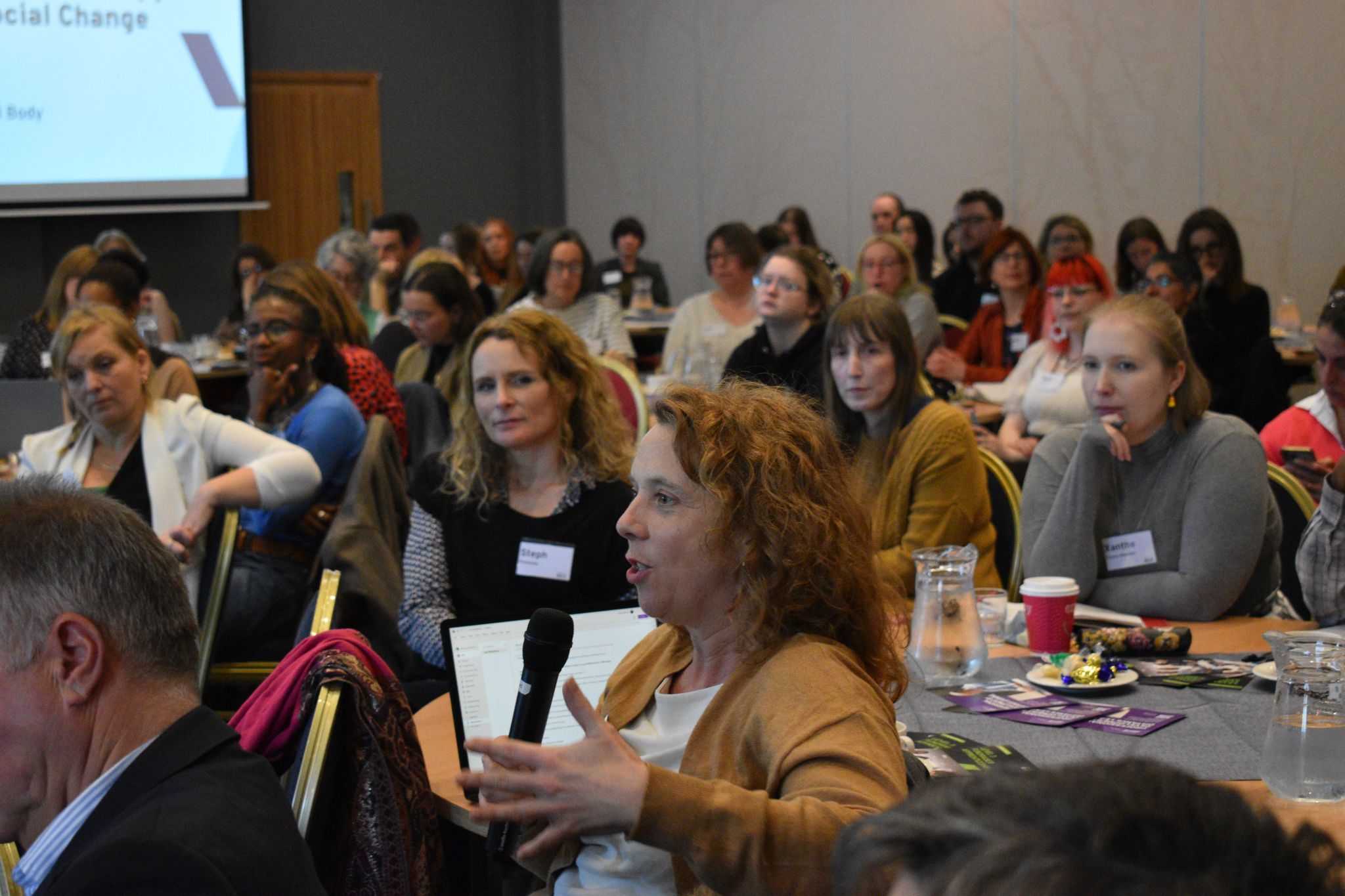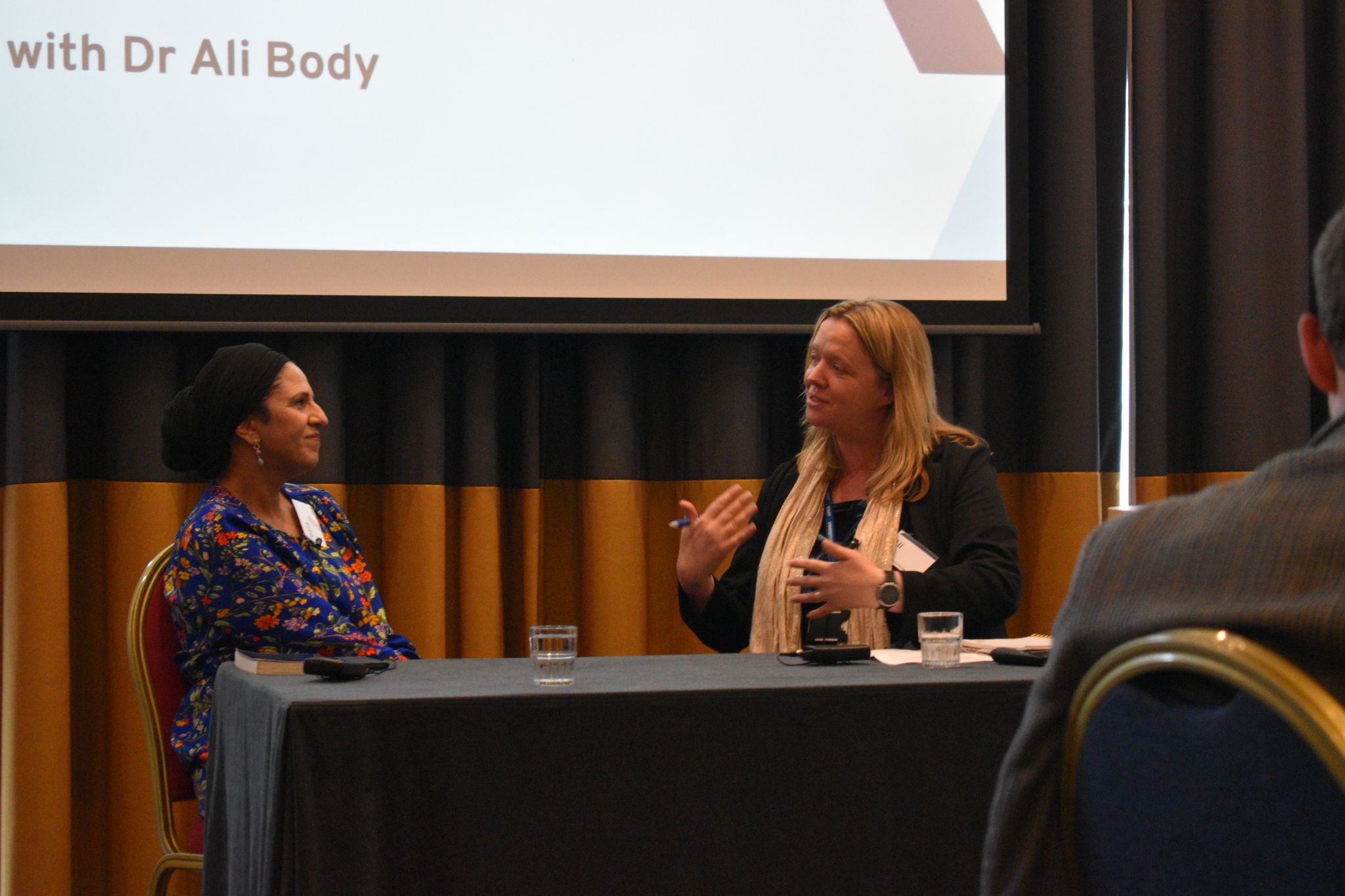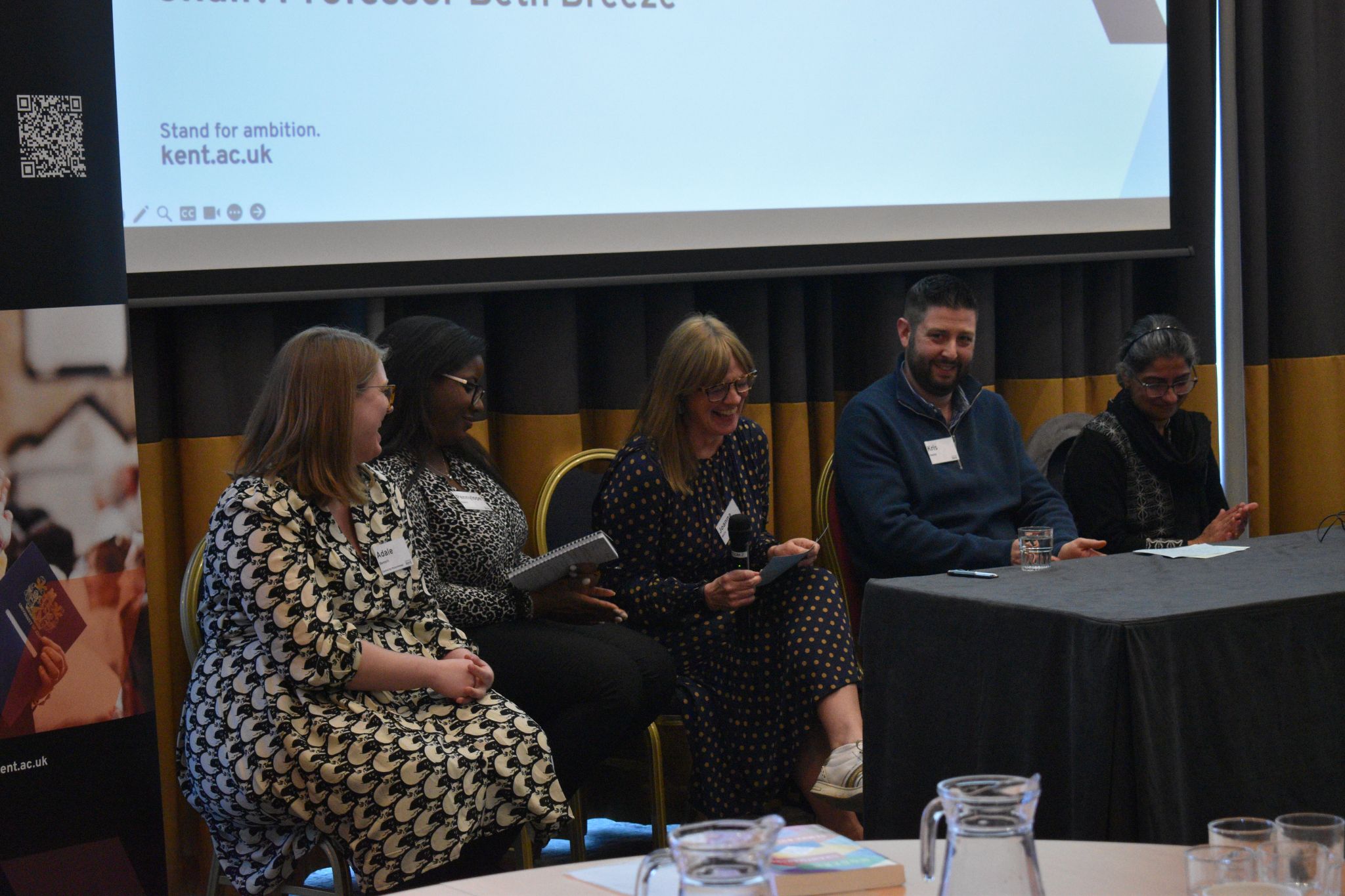‘Vicarious’ is one of my favourite words to say and to think about. Four fricative-led syllables which remind us that the important outcomes we are pursuing may only be possible because of the actions of others.
I once interviewed a major donor who disliked being celebrated for his philanthropy because, in his words, “It’s an essentially vicarious activity – everything that people think I have achieved with my donations has actually been achieved by others who have put that money to good use”.
I was reminded of his comment during our recent Understanding Philanthropy 2024 conference which took place on our beautiful campus on 19 April. Around 100 of our current students and alumni gathered, along with friends and colleague from across the philanthropy sector, to listen and reflect on keynote speeches and research insights showcasing the latest important thinking on private action for the public good.
The speeches – from Fozia Irfan OBE on transformative philanthropy, Tom Steinberg on modern grantmaking and Mark Philips on better fundraising – and 5 minute research insights on topics ranging from place-based volunteering to moonshot philanthropy via AI and in memory giving – can be viewed on our website here.
The speakers were all great and so were the audience, which is what brought my favourite word to mind. I was chairing for much of the day so was facing the audience and could see how receptive and reflective the room was, how thoughtful the questions were, and how buzzy the room was during breaks. This was a highly engaged and informed gathering of people, all of whom care deeply about understanding philanthropy better so that it can be practiced better, which in a nutshell is the mission of the Kent Centre for Philanthropy.
“Being on the Philanthropic Studies MA programme really has been quite life changing. I found it challenging, rewarding and really the most wonderful experience.”
Delivered by distance learning, Kent’s MA Philanthropic Studies enables you to balance your professional development with your personal and work life. To find out more, email philanthropy@kent.ac.uk or visit our site now.
This experience reminded me that teaching people about philanthropy – as we do on our MA Philanthropic Studies and Fundraiser Apprenticeship programmes – is also essentially vicarious. Any achievements of the teaching team at Kent is reliant on the efforts and achievements of our students, almost all of whom are working full-time in the sector and juggling busy personal lives on top of their study with us. When we meet up with our alumni and current students and hear how they are applying the knowledge they have gained at Kent to make a positive difference in society, it makes us all feel very proud and grateful to have been part of their journey.
So rather than share more of my reflections, here are some insights from three current and former students who spoke in the final session of the conference as Keynote Listeners, on what they took away from the day:
Kris Healey is CEO of Spadework, Kent Charity of Year (2023-24), which provides care, support and meaningful opportunities for adults with learning and other disabilities. Kris is in the first year of the MA Philanthropic Studies and was short-listed for Charity CEO of the year 2023.
Kris reflected on the challenge of leading charities when they are constantly being asked to deliver more with less. Kris endorsed Tom Steinberg’s call for more unrestricted donations sharing the amusing yet thought-provoking metaphor that receiving earmarked donations means he has a drawerful of pink tiaras (luxury items that donors want to pay for) whilst struggling to secure the money to pay salaries and keep the lights on.
Joanna Wells is Director of Development at Chelsea Physic Garden – founded in 1673 a 4 acre green space in the heart of London. Joanna is currently in the 2nd year of the MA Philanthropic Studies degree, starting her dissertation on how philanthropic institutions such as the National Lottery Heritage Fund, can support botanic gardens in becoming more inclusive heritage organisations.
Joanna reflected on how both Fozia Irfan and Tom Steinberg’s speeches reminded her that careers in philanthropy and grant-making are often not seen as ‘proper jobs’ compared to other professions, which is compounded by a lack of understanding of what such roles actually involve. Joanna also noted a potential disconnection between the intent of philanthropy, the practice of progressive philanthropy and what is happening in the wider world. For example the #languageshift which Fozia Irfan spoke about (compassion, love, respect) in US philanthropy may not be reflected in wider US society, despite philanthropy helping to readdress some imbalances and inequities in some pockets of its society.
Adale Bennet is also a recent graduate from the MA programme. She works in the development office at Exeter College, Oxford university and has recently won a highly competitive scholarship to undertake a fully-funded PhD with us, focused on legacy giving, starting September 2024.
Adale said that the conference had reinforced some of the key learnings and questions that she took away from the MA. For example, Fozia Irfan’s comments about philanthropy being centred on love, allyship, and respect pulled her back into the fundamental question with which the MA course begins: how to define philanthropy.
Adale also reflected on Mark Phillips’ keynote speech on ‘what fundraisers get wrong’, including his question as to whether Millennial fundraisers (which is a dominant age bracket amongst those seeking donations) can effectively engage Boomer and Gen X donors (where most of the money is)? Whilst appreciating the need to take that question seriously, Adale argued (as a proud and successful Millennial fundraiser) that fundraising success is based less on age and more on being willing to listen and relate, to conveying the mission, and to empowering donors to be generous.
Adale’s final reflection is a further reminder of the essentially vicarious nature of all philanthropic efforts – whether teachers, speakers or students. In her words:
“the conference reminded me that what we do isn’t always about the dollars – it’s about what the dollars can do to engender love, justice, and allyship – which means that we all, individually and as a sector, need to invest in our training and knowledge to make sure we are doing our very best work.”
For more about the Understanding Philanthropy 2024 conference, including photographs and links to watch most of the speeches, please visit our website here. To join the conversation next year, why not apply for the MA Philanthropic Studies starting September 2024? Email me at philanthropy@kent.ac.uk if you would like to talk!



